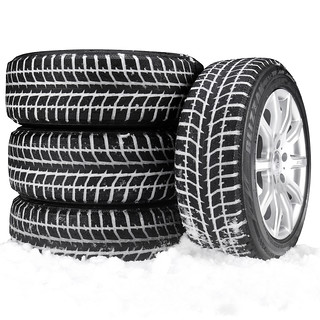 With temperatures dropping and frost and snow starting to arrive in the UK, the time has come to start preparing your car for winter. There are lots of ways that you can make sure you’re ready for poor conditions and these include everything from buying de-icer to preparing your journeys more carefully.
With temperatures dropping and frost and snow starting to arrive in the UK, the time has come to start preparing your car for winter. There are lots of ways that you can make sure you’re ready for poor conditions and these include everything from buying de-icer to preparing your journeys more carefully.
If you want to avoid accidents and the additional car leasing and insurance premiums that this can bring, it’s vital that you’re ready to drive in frost and snow. This is particularly true if you live in a rural area or in a hilly area.
One such way is to consider fitting winter tyres to your car. Next, we look at the benefits of this and how winter tyres can save you money.
Regular maintenance can help avoid accidents
The Daily Telegraph says that ‘as winter starts to bite we should all be making preparations for when it arrives with a vengeance.’ The newspaper reports that from December 2011 to February last year, the AA rescued 7,700 vehicles stuck in snow, ice or mud, and many drivers will be relying on assistance companies such as the AA and RAC in the coming months.
It’s not just poor driving and bad conditions that cause the accidents. Breakdown organisations report that more than half of all winter accidents would have been avoided if the vehicles had been properly maintained.
So, if you drive your car using a car lease or contract hire plan, including a service and maintenance pack can be a great investment. Part of your monthly fee goes towards the cost of regular servicing of your car meaning that you can get a professional to properly prepare your car for adverse driving conditions.
Have you considered fitting cold weather tyres?
A large proportion of winter accidents would also have been avoided if the cars had been fitted with winter tyres. Guy Frobisher, marketing director for Continental, says: “Most people think ‘I’ve got an SUV, I’ll be alright if it snows’. They’re wrong. Accidents involving SUVs on summer tyres in slippery conditions are worse than those on a standard saloon because they’re heavier. People think cars make the difference. Actually it’s the tyres.”
One of the myths that surrounds winter tyres is that you can’t use them when the weather is good. The truth is that winter tyres (also called ‘cold weather tyres’) work in poor conditions because the tread compound is designed to generate grip at below seven degrees centigrade.
The Daily Telegraph reports that ‘they [cold weather tyres] won’t suddenly disintegrate above that temperature, although they are likely to wear more quickly have a negative impact on fuel economy and be noisier than regular rubber.’
It may cost you a few hundred pounds to fit cold weather tyres to your car but the long term savings could be significant. For example, if you have an accident because you’re on the wrong tyres then you may well have to pay for the repairs. And, if you drive your car on a car lease or personal contract hire scheme your leasing company may penalise you if you don’t hand your car back in absolutely perfect condition.
Motoring expert James Foxall says: “The cost of having to repair a damaged car, or higher insurance premiums as a result of a claim, could end up being much higher [than the cost of the tyres].”
Have you fitted winter tyres, or are you considering fitting them this winter?
